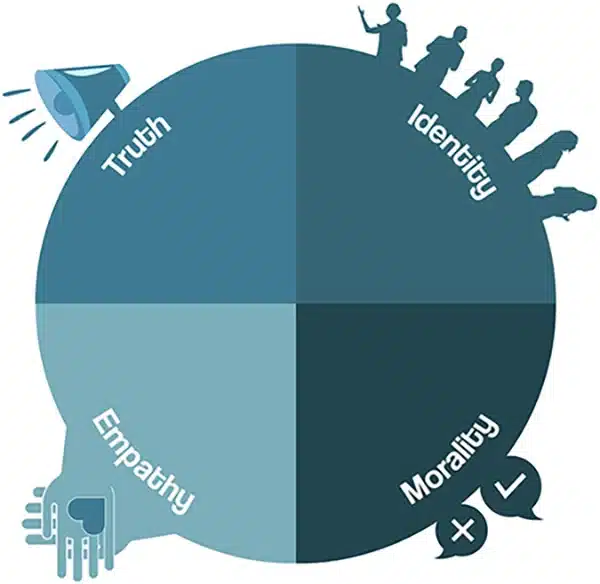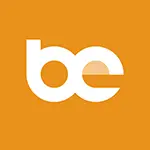To deliver a relevant and contemporary drama education which, through emphasis on performative craft, explores identity, interaction and human behaviour.

| Truth | The examination of the nature of truth and exploring ways of doing so in performance. | ||||
| Identity | The exploration of the unique identifying characteristics of the self, others and their behaviour in the creation of character. | ||||
| Morality | The interrogation of the values of right and wrong, the relationship between them & the belief systems which drive them. | ||||
| Empathy | The imagining of the world through multiple perspectives and inhabiting points of view in the creation of performance. | ||||
Each unit or project within the Drama curriculum will be:
| Phases 1 and 2 | Developing a love of learning | ||||
| Phase 1 Journey | Students develop foundational, individual and ensemble, performance skills and apply them in the process of creating work. They will engage with the process of working collaboratively and the challenges of developing and working as part of an ensemble. They will develop tools with which to create performance and understand the value of reflection. | ||||
| Phase 2 Journey | Students develop foundational, individual and ensemble, performance skills and apply them in the process of creating work. They will engage with the process of working collaboratively and the challenges of developing and working as part of an ensemble. They will develop tools with which to create performance and understand the value of reflection. | ||||
| Phases 3 and 4 | Developing Passions & Increasing Independence | ||||
| Phase 3 Journey | Students will develop a working toolbox of skills and techniques and apply them to the creation of original work. They will engage with the realisation of scripts in performance and through sustained reflection will develop an ability to evaluate and analyse their own work and the work of others. Working as performers, directors and designers, they will build a working lexicon of subject specific terminology and identify their own creative preferences. | ||||
| Phase 4 Journey | Students will develop a working toolbox of skills and techniques and apply them to the creation of original work. They will engage with the realisation of scripts in performance and through sustained reflection will develop an ability to evaluate and analyse their own work and the work of others. Working as performers, directors and designers, they will build a working lexicon of subject specific terminology and identify their own creative preferences. | ||||
| Phases 5 and 6 | Building choice, autonomy and empowered professionalism | ||||
| Phase 5 Journey | Students will connect their own evolving practice and personal context to those of established theatre practitioners and theorists in the process of making meaning in performance. They will understand a variety of rehearsal techniques and the process of creating concepts, developing ideas concepts and refining both original and scripted work. In the roles of performer, director and designer, they will explore practically and theoretically, the connections between artistic intentions and audience impact and will be able to analyse critically, performance in various contexts. | ||||
| Phase 6 Journey | Students will connect their own evolving practice and personal context to those of established theatre practitioners and theorists in the process of making meaning in performance. They will understand a variety of rehearsal techniques and the process of creating concepts, developing ideas concepts and refining both original and scripted work. In the roles of performer, director and designer, they will explore practically and theoretically, the connections between artistic intentions and audience impact and will be able to analyse critically, performance in various contexts. | ||||

School 21,
Pitchford Street,
Stratford,
London,
E15 4RZ

Big Education Trust,
Sugar House Lane,
Stratford,
London,
E15 2QS